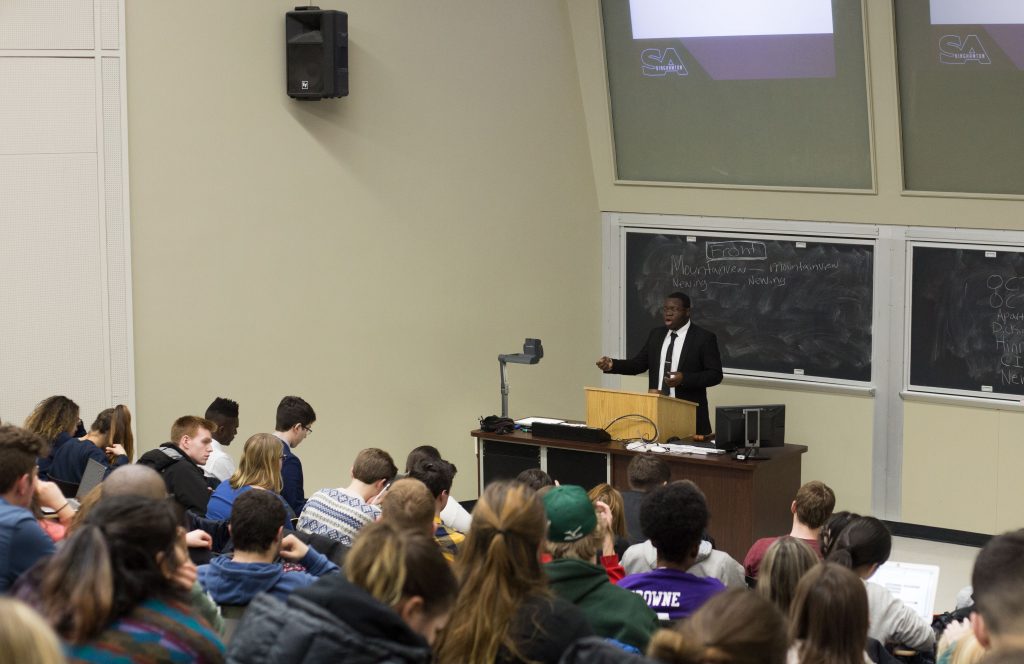
Students packed Lecture Hall 10 on Tuesday night to learn more about the platforms of each Student Association (SA) Executive Board candidate and ask questions about their goals.
Candidates for president, executive vice president, vice president for finance, vice president for academic affairs, vice president for multicultural affairs and vice president for programming spoke at SA E-Board Election Sweeps about their platforms for the 2018-19 academic year.
Rachel Anszelowicz, a sophomore majoring in philosophy, politics and law, philosophy and classical and Near Eastern studies; Jerry Toussaint, a junior majoring in philosophy, politics and law; and Michael Wuest, a junior double-majoring in history and philosophy, politics and law, talked with students about their plans for the presidency, should they be elected. The presidency is the only position with multiple candidates; all others are running unopposed.
In response to student concerns about making the SA more approachable, Toussaint said he would like the SA to start tabling in order to connect with students.
“One of the most practical ways I believe this can be done is by tabling,” Toussaint said. “The SA historically does not table, so there’s not necessarily any view of the SA or the different people within the SA. So, I believe that by first tabling and interacting with students we can create more of a sense of personability.”
The presidential candidates were also asked how they would differentiate between free speech and hate speech in reference to a recent article published by the Binghamton Review, BU’s student-run conservative monthly publication, which has been accused of using hate speech in their writing. Anszelowicz said she aims to work with student organizations to define hate speech and supported the way the current e-board handled the situation.
“I would advocate very strongly for a definition of hate speech and I would enforce it and make sure that every student organization group would feel comfortable with that definition,” Anszelowicz said. “Additionally, I really respect and I would probably like to echo the actions taken by the current e-board and think it was handled very well.”
Wuest responded to student concerns regarding how candidates will choose to fulfill their role, either as an executive or as a representative.
“You are both president of the Student Association and CEO of the Student Association, which is a multimillion-dollar company,” Wuest said. “I know what it takes to find that balance [between executive and representative] because I’m doing it right now as an assistant and an elected congress member. You need to advocate and directly talk about student needs and be accessible.”
In the past, candidates would “sweep” through campus communities to attend each of their government meetings, according to the SA Sweeps Viewers’ Guide. Now, sweeps take place in one room, and all undergraduate students are welcome to attend and discuss candidates’ platforms. Each candidate had three minutes for an opening statement, which was followed by rounds of questions from students separated by their respective communities. Candidates also made a two-minute closing statement.
Harry Bittker, chair of the SA Elections Committee and a junior majoring in political science, said the interaction between candidates and students has expanded since sweeps first began.
“I think this is a really good opportunity for students not just to hear from candidates, but also to interact with them,” Bittker said. “One of the biggest improvements we’ve made this year in regard to interaction is that we’ve basically created a way, a Google form, for people to ask candidates questions, so people can ask questions without necessarily directly interacting with them.”


